11th February 2022, 11-1 (UK time)
Digital Arts and Refugee Engagement (DA-RE)


The DA-RE project is led by the Centre for Excellence in Media Practice.
This virtual event on 11.2 will be chaired by Isabella Rega from CEMP and Sara Marino from London College of Communication.
Digital Arts and Refugee Engagement (DA-RE) is a Global Challenges research project using arts-based activities in combination with digital literacy for developing the capabilities of refugee youth in Turkey and Bangladesh.
DA-RE’s participants co-create arts and media and connect and share using digital tools and platforms to narratives from their situated perspectives and lived experiences to develop the skills of engagement and agency in a digital ‘third space’.
DARE’s research team brings together expertise in digital literacies, arts, literacy and agency, adult learning and vocational education, with academic partners and community practitioners working with refugee youth and research assistants in Turkey and Bangladesh.
This panel will connect the refugee youth participants in Turkey and Bangladesh to share the creative work generated by the project, followed by an academic panel with the project partners and facilitators in the two refugee youth settings.
During this virtual event, we will explore the role of digital literacy in combination with the arts in developing the capabilities of refugee youth and facilitating ethical listening to the seldom heard.
Link to join (11-1, UK time, on 11th February 2022)
https://bournemouth-ac-uk.zoom.us/j/88189140123?pwd=VzhQeXA4QVBIMW5ZcXdkMmVibG9YQT09
More about the project
See the DA-RE project website.
The project has two centres of activity:
Turkey
Gate of Sun works with young Syrian refugees on the production of digital artistic projects, delving into the lived experience of the young participants to address issues related to their lives as refugees and the interaction with the host community.
Bangladesh
The DARE research activities in Bangladesh take place in the Kutupalang and Balukhali Rohingya refugees camps located in Ukhia, a sub-district of Cox’s Bazar, a Southeastern part of Bangladesh. Rohingya refugee youth participants are painters, photographers, youtubers, social media activists, musicians and digital storytellers. They work with a Rohingya youth research assistant and four anthropology graduates from the host community who are trained and skilled in the documentation of refugee art-based activities.
In both settings, DA-RE seeks to better understand how refugee youths’ digital literacies can be combined with arts-based approaches for learning, narrating and voicing pain & pleasure, past & future, identity, ethnicity and aspiration.
The Project Team
Amr Ajlouni is a filmmaker from Damascus, Syria. In 2012, he graduated with a bachelor’s degree from Damascus University, Faculty of Media and Communication. In 2017, he established Gate of Sun production House. Since then, he has been widening his experience in entrepreneurship and start-up with experts from Inno Campus, Habitat Turkey, and Impact Hub Istanbul.
Dr Nasir Uddin is a cultural anthropologist and Professor of Anthropology at the University of Chittagong. His latest book is “The Rohingya: An Ethnography of ‘Subhuman’ Life” (The Oxford University Press, 2020).
Dr H. Özden Bademci holds an associate professorship in clinical psychology at Maltepe University in Istanbul. She is the Founder Director for Research and Application Centre for Street Children (SOYAÇ) at Maltepe University.
Dr Sara Marino is Senior Lecturer in Communications and Media at London College of Communication, University of the Arts. Her research focuses on the intersections between migration, material cultures and media technologies. Her latest book “Mediating the refugee crisis. Digital Solidarity, Humanitarian Technologies and Border Regimes” (Palgrave Macmillan, 2021) uniquely examined how communication technologies have become central to governance, resistance, humanitarianism and activism.
Dr Isabella Rega is an Associate Professor in the Faculty of Media and Communication at Bournemouth University (UK). Her research focuses on the role of digital media to promote community development and social change. She is also involved as Co-I in two GCRF projects, one funded by Leicester University, Lockdown Stories and one by Bournemouth University, Sister Communities, both exploring the potential of community tourism and digital storytelling.
Mohammad Zarzour is a filmmaker and Television program director from Damascus, Syria. he is the manager of the Creative Production Department at Gate of Sun Film Production Company
Professor Julian McDougall is Head of the Centre for Excellence in Media Practice, leads the Professional Doctorate (Ed D) in Creative and Media Education at Bournemouth University and convenes the annual International Media Education Summit. In the fields of media education and media literacy, he is the author of a wide range of books, articles, chapters and research reports and has provided numerous research projects for research councils, media industry, charities and non-profit organisations, most recently the British Council and BBC Media Action.
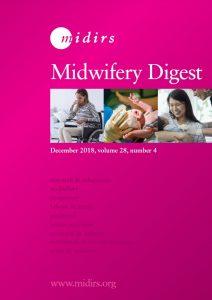

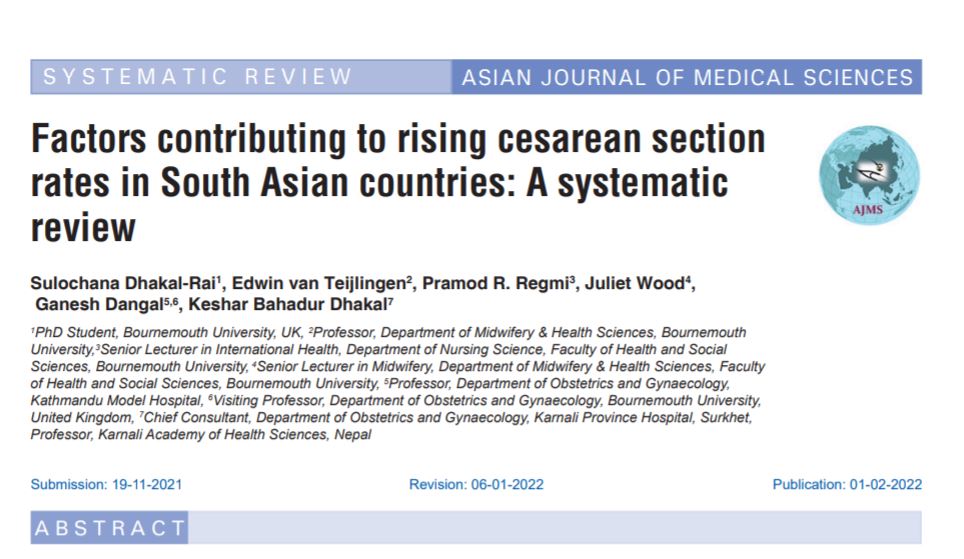 Congratulations to Bournemouth University’s PhD student Sulochana Dhakal-Rai on the publication today of the latest paper from her research thesis. This latest paper ‘
Congratulations to Bournemouth University’s PhD student Sulochana Dhakal-Rai on the publication today of the latest paper from her research thesis. This latest paper ‘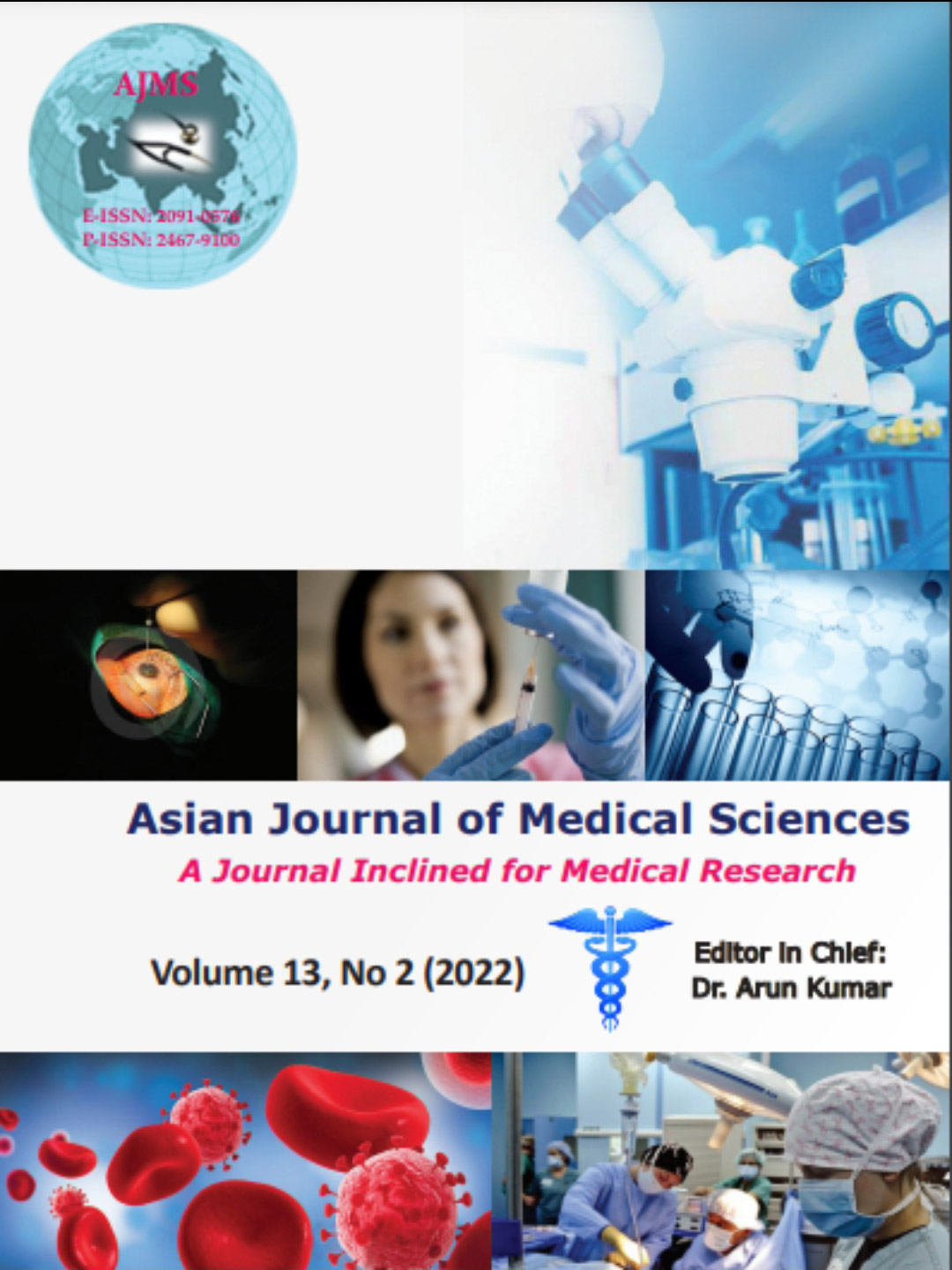 The paper is part of her PhD study of the rising CS rate in Nepal. This systematic review is co-authored with her BU PhD supervisors, Dr. Juliet Wood, Dr. Pramod Regmi and Prof. Edwin van Teijlingen as well as her Nepal-based supervisors Dr. Ganesh Dangel (FHSS Visiting Faculty) and Dr. Keshar Bahadur Dhakal. This is the sixth paper from Sulochana’s interesting and highly topical PhD thesis. The previous five were published in 2018, 2019 and 2021 [2-6].
The paper is part of her PhD study of the rising CS rate in Nepal. This systematic review is co-authored with her BU PhD supervisors, Dr. Juliet Wood, Dr. Pramod Regmi and Prof. Edwin van Teijlingen as well as her Nepal-based supervisors Dr. Ganesh Dangel (FHSS Visiting Faculty) and Dr. Keshar Bahadur Dhakal. This is the sixth paper from Sulochana’s interesting and highly topical PhD thesis. The previous five were published in 2018, 2019 and 2021 [2-6].


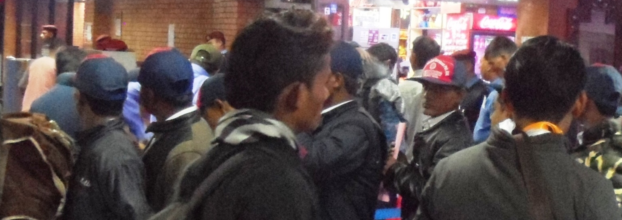

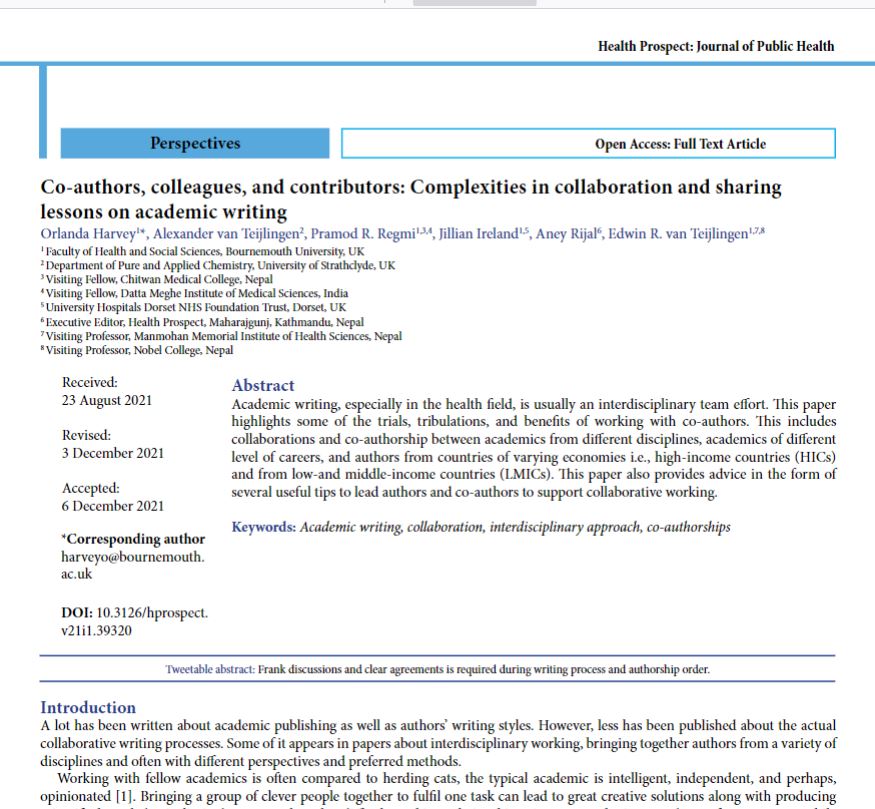
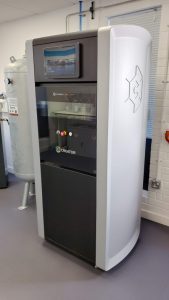
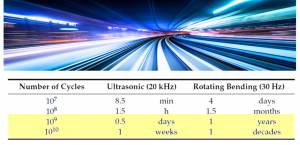
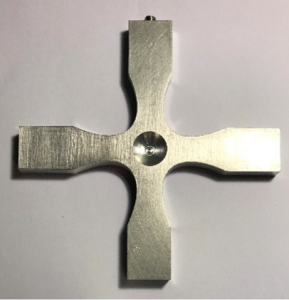
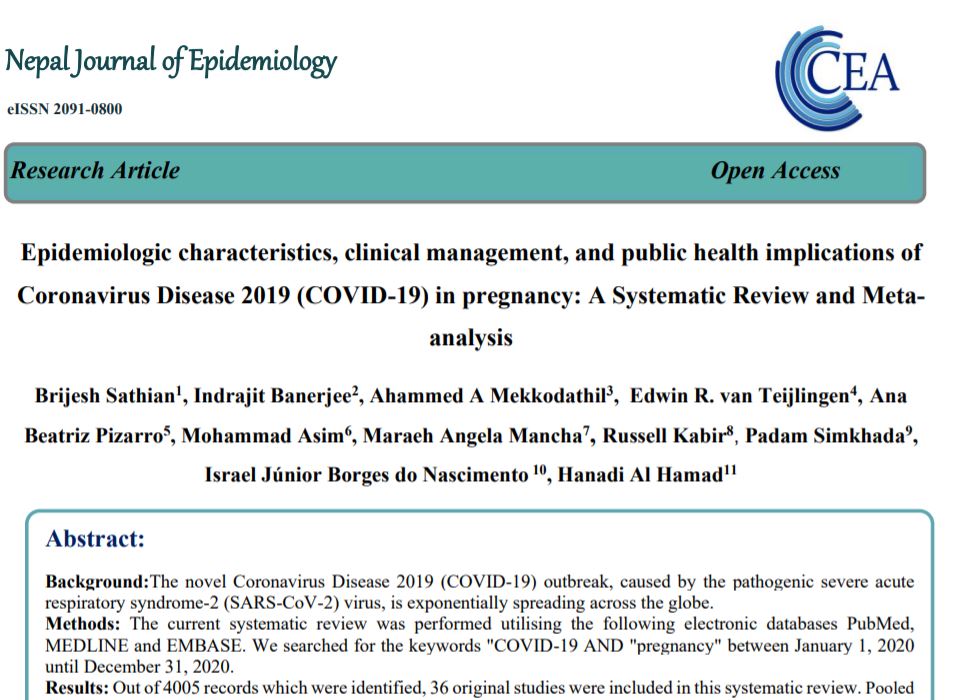 This review covered the published literature on the epidemiology, clinical management and public health prevention aspects of pregnancy and childbirth and coronavirus (COVID-19) up until December 2020. We worked hard and fast to submit the paper as soon as possible after the end of 2020 to be able to publish up-to-date findings. We managed this and submitted the paper on March 5th, the peer-review took some months and so did the making of the revisions. As a result we resubmitted the manuscript of 29 September and we got the acceptance email within a week. We made it into the next issue of the Nepal Journal of Epidemiology which published exactly one year after the data collection period had ended for our systematic review.
This review covered the published literature on the epidemiology, clinical management and public health prevention aspects of pregnancy and childbirth and coronavirus (COVID-19) up until December 2020. We worked hard and fast to submit the paper as soon as possible after the end of 2020 to be able to publish up-to-date findings. We managed this and submitted the paper on March 5th, the peer-review took some months and so did the making of the revisions. As a result we resubmitted the manuscript of 29 September and we got the acceptance email within a week. We made it into the next issue of the Nepal Journal of Epidemiology which published exactly one year after the data collection period had ended for our systematic review.
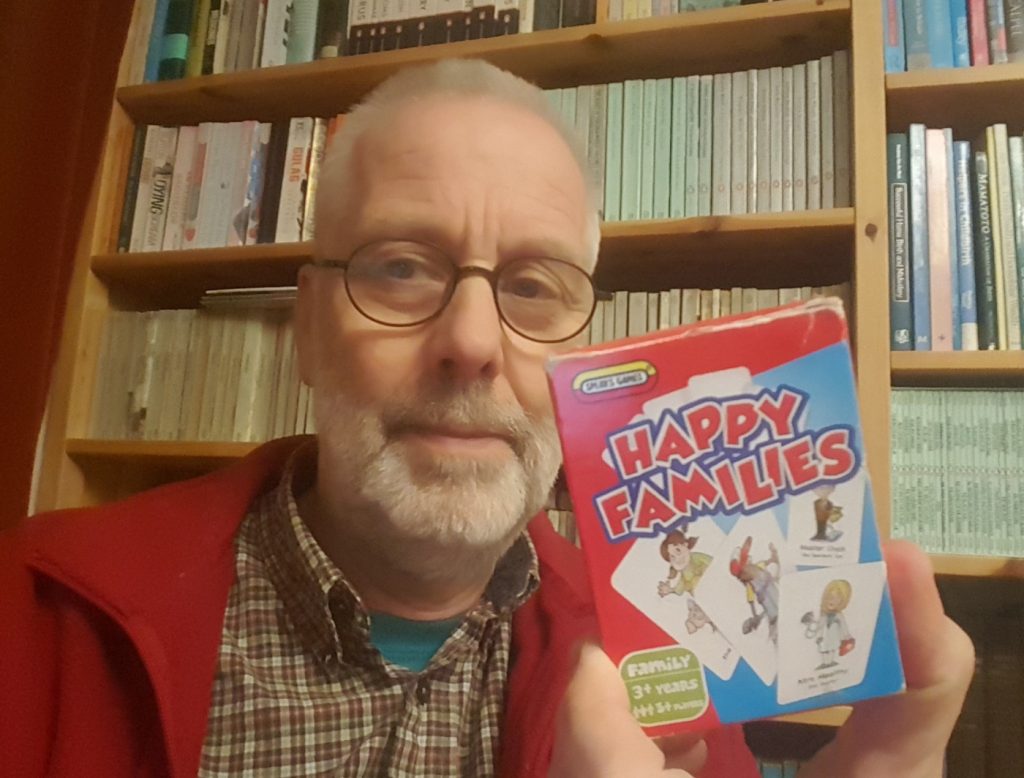
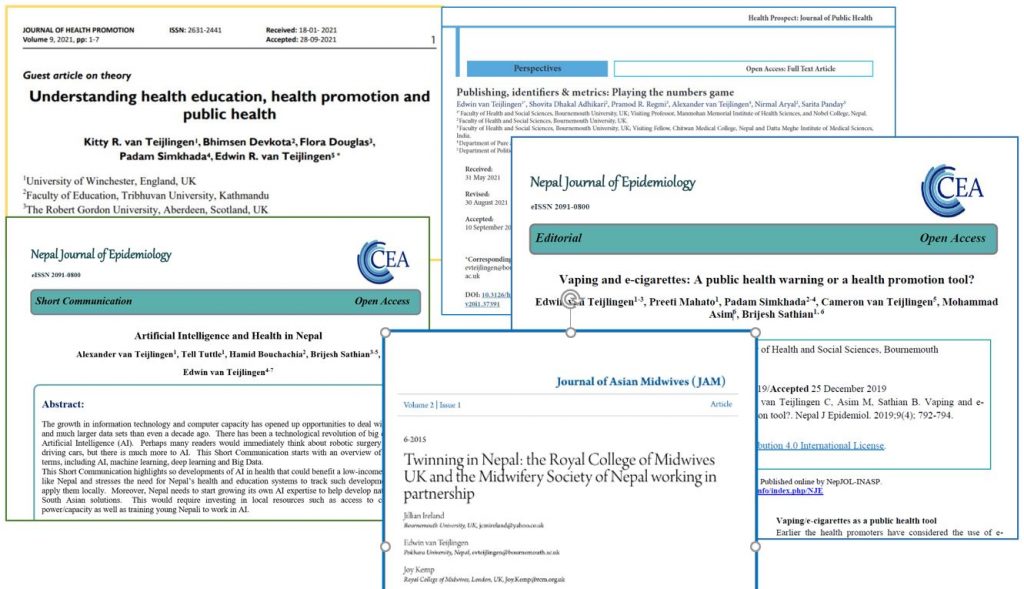
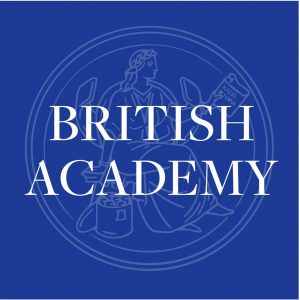
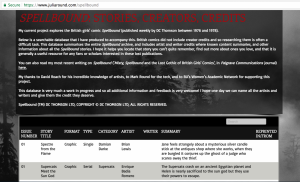













 New weight change BU paper
New weight change BU paper One week to go! | The 16th Annual Postgraduate Research Conference
One week to go! | The 16th Annual Postgraduate Research Conference Geography and Environmental Studies academics – would you like to get more involved in preparing our next REF submission?
Geography and Environmental Studies academics – would you like to get more involved in preparing our next REF submission? Congratulations to three former BU staff
Congratulations to three former BU staff MSCA Staff Exchanges 2024 Call – internal deadline
MSCA Staff Exchanges 2024 Call – internal deadline Applications are now open for 2025 ESRC Postdoctoral Fellowships!
Applications are now open for 2025 ESRC Postdoctoral Fellowships! Horizon Europe – ERC CoG and MSCA SE webinars
Horizon Europe – ERC CoG and MSCA SE webinars MaGMap: Mass Grave Mapping
MaGMap: Mass Grave Mapping ERC grants – series of webinars
ERC grants – series of webinars